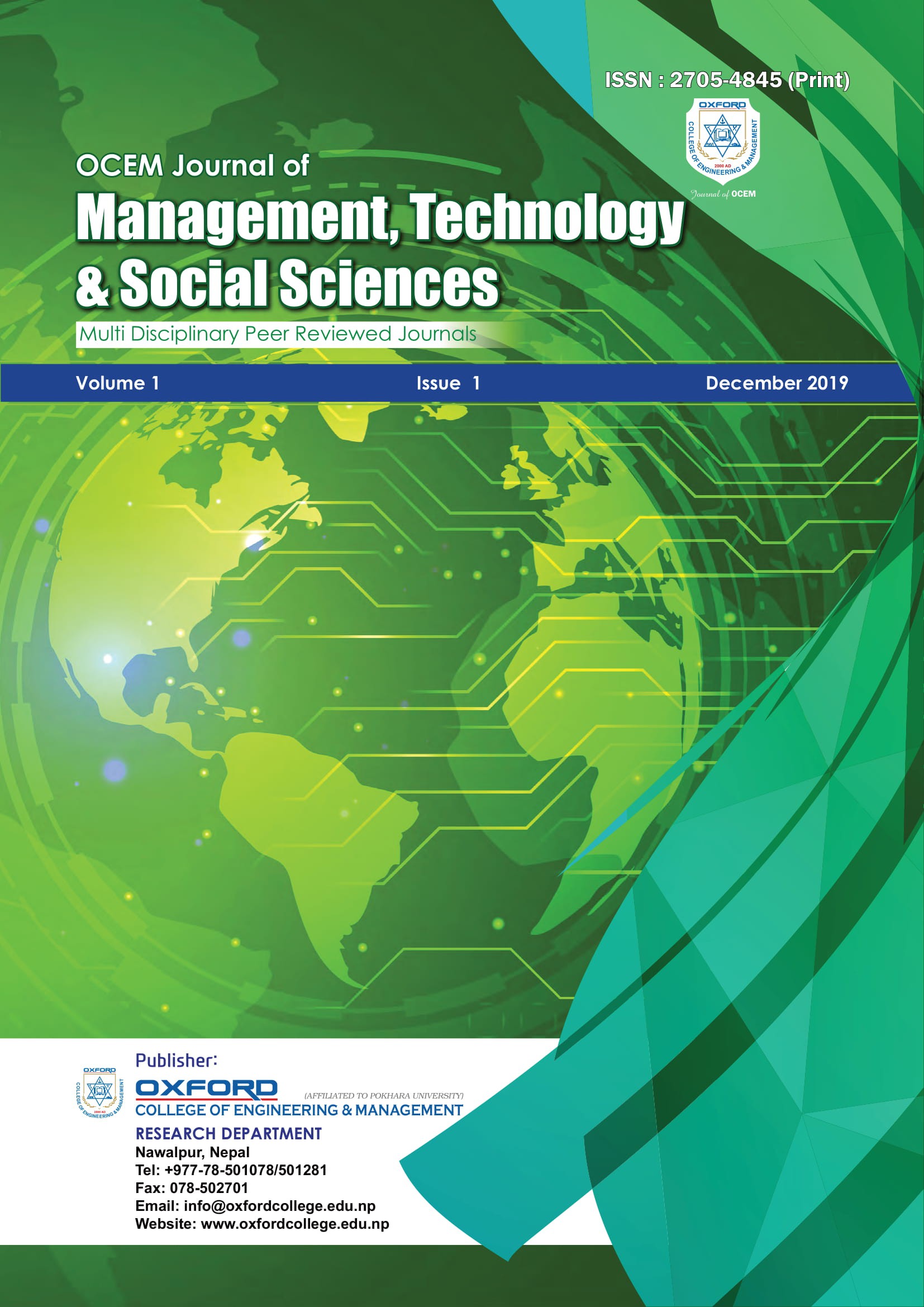
Student Satisfaction at Secondary Level in Oxford College of Engineering & Management
The objective of this study was to examine the student satisfaction level at grade 11 and grade 12 in Oxford College of Engineering and Management (OCEM). Quantitative methodology approach along with the survey study was applied in this study. The survey questionnaire was used as research instrument to collect data in this study. The target population was four hundred and fourty and the sampled population was two hundred and four. There were two hundred and four (N= 204) respondents where the boy’s population was 55.88 % and girl’s population was 41.11 %. The response rate was 94.22%. The Cronbach’s Alpha was calculated to find the reliability of the data. Independent sample t- test was used to find the differences between the male and female students’ intention to recommand for the enrollment of their kith and kin at OCEM. The previous studies reveal that students’ satisfaction at the secondary level schools were embedded in the factor of quality of education, school administrative factor, managerial factor, psysical factor and school location. The results show that lifelong academic skills, standard and qualified lecturers, student centered activities, strong faculty management, proactice faculty support, better college environment and facilities, punctuality of the transfort facilities, strong security environment, better lab facilities and advanced library facilities, advanced physical facilities and college infrastructure facilities were extracted as the key subscales of the analysis section. The results show that there was significant relationship between existing students’ recommendation to enrol and student centered activities, advanced lab and library facilities and college facilities at Oxford College of Engineering and Management (OCEM) at Nawalpur of Nepal (p < 0.05, B = -.342, B = -.309. B = -.398). The implications of findings will be beneficial for college principals, school leaders, academicians, Head of Department, college promoters to formulate student centered strategies. It will be also useful to college policy makers to formulate new student-centered strategy to motivate students for the enrolment. In generalizing the results of the present study, there is some cause for concern due to a sampling method and representativeness of the boys and girls
Keyword: student satisfaction, quality of education, school administrative factor, managerial factor, physical factor and school location.
